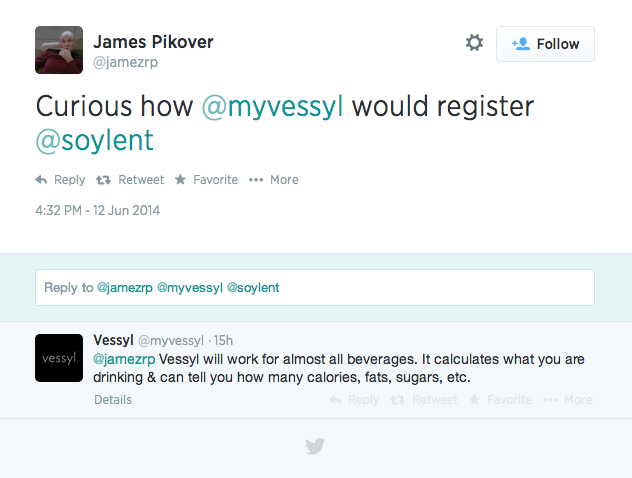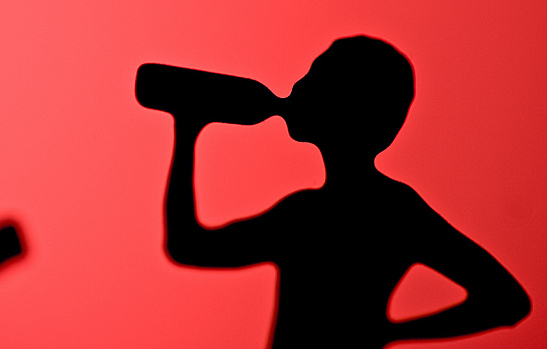Smart, connected devices are awesome. They minimize the number of steps necessary between coming up with an idea and actually accomplishing it quickly and efficiently. Wearables show us our exercise and sleep information, smartphones track our movement and pretty much everything else we want them to, and Vessyl (pronounced “vessel”) tells you exactly what you’re drinking—down to the calorie.
It’s a great concept. Mark One, the team behind it, hit on an interesting and completely forgotten segment of our thirst for personal analytics (pun intended): tracking liquid intake. Not just how many cups of water we drink, but coffee, soft drinks, protein shakes, and pretty much anything else considered sustenance that comes out of a cup. It can even detect food-replacement nutritional shake Soylent, as the company confirmed via Twitter:

Food is extremely hard to track accurately and efficiently. Unless you only eat at restaurants that provide nutritional data for all of their offerings, and unless you take the time to input all of that into an app, it’s difficult to paint an accurate picture of how well you eat. Drinks are completely left out of the equation for most people, and that’s something that Mark One purports can be tracked. The company is finalizing a smart cup that can determine what you are drinking, when you drink it, and how much you drink, and share that data with your smartphone regularly.
This is one coffee cup you won’t want to lose, with a current $99 pre-order price tag and $199 standard cost.
As great as the concept sounds, the real world isn’t built for a personalized drinking glass. You won’t go to a coffee shop and hand the barista your special cup every morning, then use that same cup for water later, Gatorade when working out, a beer or two at night, etc. Most people stop before the first step.
The inconvenience of using a single cup is only half the problem, though. For office workers, it’s not unreasonable to get both coffee and water, or another drink, simultaneously. Not many people are going to pay $200 just to track their liquid intake, no matter how beautiful the cup may be. Then there are restaurants: are you going to carry Vessyl with you? Are you going to say, “Oh, just fill it up to here,” instead of getting the full drink? Where does it stop?
The social etiquette problems don’t stop there, and your imagination can lead you to a number of different problems the average person would run into with Vessyl. Even the home is a problem. We have different cups for different functions: standard, coffee, tea, wine, and if we start talking about other forms of alcohol, forget it. Worse yet, many drinks have been fine-tuned for the bottle they’re sold in. Think of Coke out of a glass bottle, or many drinks that come from a can; the container is part of the experience, and Vessyl removes that entirely.
Some of these issues are addressed, namely the ability to manually log a drink into their app without drinking it from the mug. Even then, most any personal data app allows for that. All Vessyl does is show that what you’re drinking is just as important as what you’re eating.
All products and services that succeed address real-world problems that people face. Keeping track of what we drink is something that many people may want, but there’s a reason why the tech industry not yet offered a product to fill this void: it’s not that important. Furthermore, it’s so inconvenient that only the most dedicated buyers would actively buy it and remain engaged over time. For the rest of us, it’s a cool cup to look at, ask how the owner likes it, and move on.
Image courtesy of Flickr
[cf]skyword_tracking_tag[/cf]

